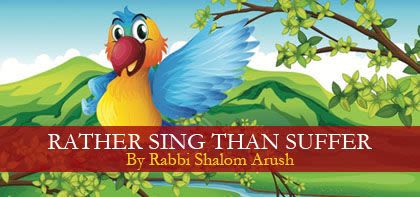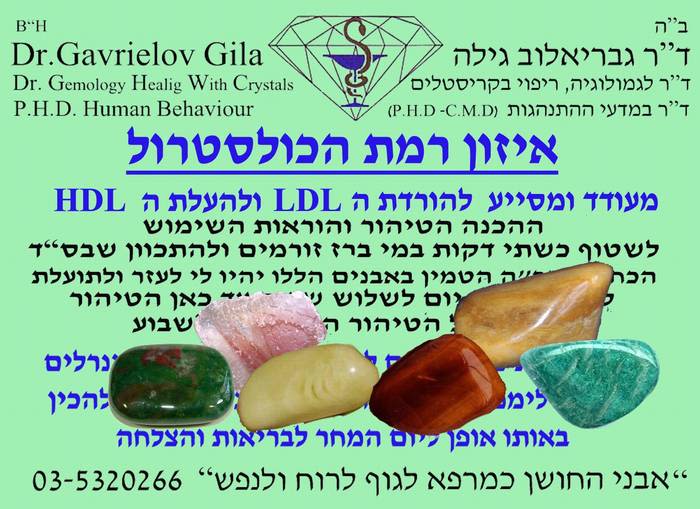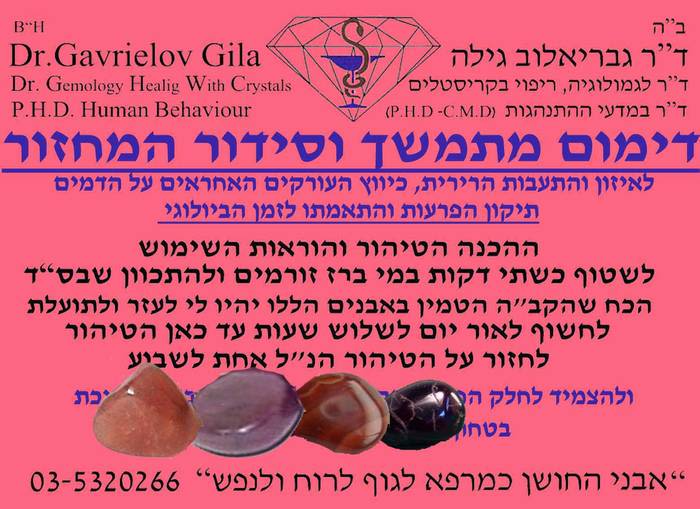
Rather Sing than Suffer
With spiritual awareness, we sing instead of suffer. Rather than building the pyramids as slaves, we sing all night long on Seder night...

Let’s not forget that Passover and freedom was preceded by our people being slaves in Egypt. Even our suffering was all for the very best. We understand that now. But in places where we don’t yet understand, we must have steadfast emuna to rely on.
Suffering is intended to arouse a person to seek Hashem, although Hashem prefers that a person seek Him on his own accord. A self-starter can attain spiritual awareness without any suffering or pain. However, when Hashem sees that a person remains in deep spiritual slumber, He sends him a wake-up call in the form of suffering. Hashem, as a loving Father in Heaven, doesn’t like to do this for it causes Him pain – but it’s preferable to letting a soul damage itself by straying so far away.
A person’s suffering does not come from the fact that he’s deficient in any area. The deficiency, like everything else, is sent from Hashem for the person’s own good. Alternately, we can say that suffering really comes from a person’s lack of spiritual awareness and recognition that everything is really for the good. Consequently, a person feels pain because does not recognize that his deficiency is good and instead, feels that it is wrong.
 A person with spiritual awareness realizes that his difficulties in life are not punishments, but rather stimulants designed to trigger spiritual growth and enhanced proximity to Hashem. With this in mind, he can sincerely thank Hashem for everything – good or seemingly otherwise – saying gladly, “Thank you so much, Hashem, for this particular tribulation which is helping me to come closer to You!”
A person with spiritual awareness realizes that his difficulties in life are not punishments, but rather stimulants designed to trigger spiritual growth and enhanced proximity to Hashem. With this in mind, he can sincerely thank Hashem for everything – good or seemingly otherwise – saying gladly, “Thank you so much, Hashem, for this particular tribulation which is helping me to come closer to You!”
Rebbe Nachman writes, “Truly there is no evil in the world, only absolute good. The pain that a person experiences, G-d forbid, is only because his spiritual awareness is taken away…”
Rebbe Nachman teaches that suffering comes through eliminating a person’s spiritual awareness to the point that he cannot see the ultimate purpose, which is completely good. Subsequently, he feels pain and suffering. When a person has spiritual awareness, and can look towards the purpose, he will not feel any pain. We see this clearly when people internalize the lessons of our emuna broadcasts, CDs, and books; through them, they acquire spiritual awareness to know and believe that everything is for the good. As a result, they acquire the strength and spiritual stamina to withstand the trials of life.
With spiritual awareness, we sing instead of suffer. Rather than building the pyramids as slaves, we sing all night long on Seder night.
Elijah the Prophet expounds on the passage from Lamentations 2:19, “Awaken and rejoice at night,” commenting that the idea of singing and rejoicing expressed by the Hebrew word rina refers to giving thanks for suffering (Eliyahu Rabba, Parsha 18). A person must understand that suffering comes to cleanse his soul of the blemishes caused by his sins. “As such,” Elijah says, “a person should get up in the middle of the night to bless, praise, and exalt Hashem’s Holy Name.”
King David says (Psalms, 119:62), “At midnight I will rise to praise You on Your righteous judgments.” These judgments refer to stern judgments and suffering, which are all for a person’s ultimate benefit.
Elijah the Prophet also teaches, “Everyone who gives thanks for their tribulations, and are happy with them, are given life in this world and in the Everlasting World to Come.”
Rabbi Eliyahu Vidash writes in the landmark book, Reishit Chochma (Gate of Repentance, Chapter 3), “If it seems that suffering comes from the side of harsh judgment, realize that this is not true. Suffering only comes from the side of loving-kindness, as it says in Psalm 103, ‘Merciful and gracious is Hashem, slow to anger and abundant in loving-kindness.’ King Solomon says (Proverbs, Ch. 3), ‘For whomever Hashem loves Hashem rebukes…’ And, ‘A person who spares his rod hates his child, and he who loves his child finds ways to reprove him.’ And love is certainly from the side of loving-kindness…”
The Reishit Chochma explains that suffering comes from G-d’s attributes of goodness and loving-kindness, in order to help us correct our souls and earn our portion in the World to Come. When we atone for any wrongdoing in this world, we are free to enjoy our rewards in the next world. Moreover, the pleasant life we lead with enhanced emuna and spiritual awareness is a wonderful reward that we can already enjoy in this world. Meanwhile, enjoy your Passover and may we soon celebrate in our rebuilt Holy Temple in Jerusalem, amen!











Tell us what you think!
Thank you for your comment!
It will be published after approval by the Editor.